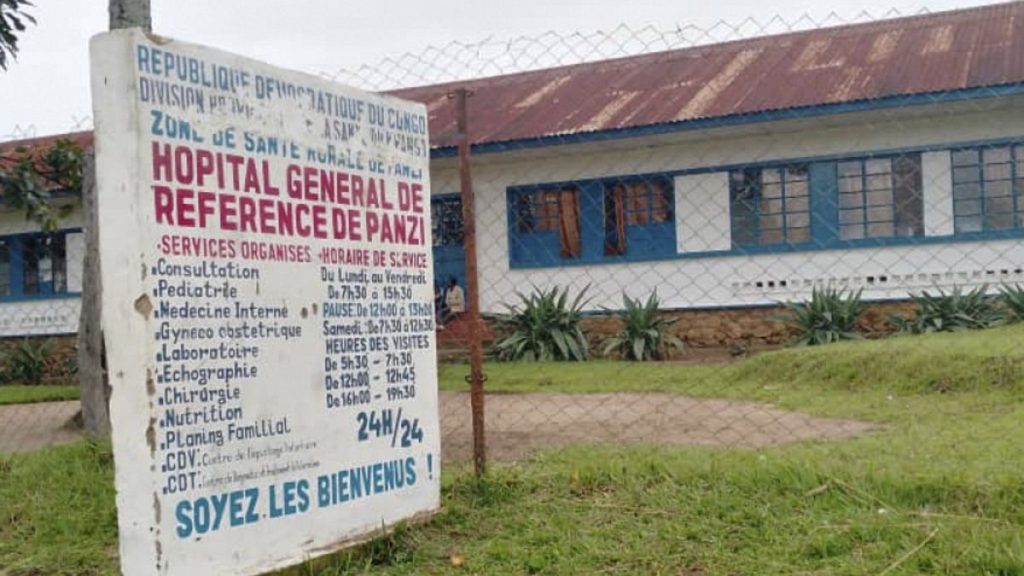The Democratic Republic of Congo (DRC) is grappling with a mysterious outbreak of a flu-like illness, primarily affecting children under five in the remote Kwango province. Between October 24 and December 5, 2023, over 400 cases were reported, with the official death toll reaching 31, though local authorities believe the number is closer to 71 due to deaths occurring outside medical facilities. The illness presents with common flu-like symptoms such as fever, headache, cough, runny nose, fatigue, and body aches. The remote nature of the affected region, coupled with infrastructural deficits and security concerns, is hindering efforts to identify the underlying cause and implement effective control measures.
The World Health Organization (WHO) has deployed a rapid response team to the region, but access is challenging. The journey to the affected area takes two days by road, exacerbated by the ongoing rainy season. The absence of a local laboratory necessitates sending samples to the national laboratory in Kinshasa, approximately 700 km away, causing delays in diagnosis. This logistical bottleneck, combined with the limited diagnostic capabilities within the region, significantly impedes the identification of the disease’s root cause. While the precise etiology remains unknown, authorities are considering several possibilities, including acute pneumonia, influenza, COVID-19, measles, and malaria, recognizing that multiple diseases could be contributing to the outbreak.
Malnutrition is a significant compounding factor, with all severely ill patients exhibiting signs of malnourishment. This underscores the vulnerability of the affected population and highlights the need for a comprehensive response addressing both the immediate health crisis and the underlying nutritional deficiencies. Further complicating matters is the volatile security situation in the DRC. The presence of over 100 armed groups operating in the country poses a direct threat to response teams and communities, potentially disrupting efforts to contain the outbreak. The ongoing conflict and instability create significant logistical and security challenges, making it difficult to reach affected populations and deliver essential medical supplies and personnel.
The delayed reporting of the outbreak, which wasn’t communicated until November 29, has raised concerns among international health officials. This delay of several weeks significantly hampers the ability to implement timely interventions and raises concerns about the potential for further spread. Rapid identification and response are crucial in containing outbreaks, especially in resource-limited settings, and the delay underscores the need for strengthened surveillance and reporting systems within the DRC. The WHO currently assesses the risk from the unknown disease as high in the local region, moderate across the DRC, and low at the continental and global levels. However, the situation calls for heightened vigilance and proactive measures to prevent further escalation.
The situation in Kwango province illustrates the complex interplay of health, security, and logistical challenges in responding to disease outbreaks in fragile contexts. The combination of a remote and difficult-to-access affected area, limited diagnostic capacity, malnutrition, and the persistent threat of armed groups creates a perfect storm hindering effective response efforts. Addressing this complex crisis requires a multi-pronged approach, including strengthening local health infrastructure, improving surveillance and reporting systems, addressing malnutrition, and ensuring the safety of healthcare workers and communities. International collaboration and support are crucial to bolstering the DRC’s capacity to manage this outbreak and prevent future ones.
The ongoing investigation into the cause of the outbreak is paramount. Identifying the responsible pathogen(s) is crucial for implementing targeted treatment strategies and preventing further spread. Simultaneously, efforts must focus on addressing the underlying vulnerabilities, including malnutrition and the security concerns, which exacerbate the impact of the outbreak. The delayed reporting underscores the need for stronger surveillance and reporting mechanisms, both within the DRC and at the regional level, to ensure timely detection and response to future outbreaks. A comprehensive and coordinated approach, involving local authorities, international health organizations, and security forces, is necessary to effectively manage the current crisis and build long-term resilience against future health threats.














